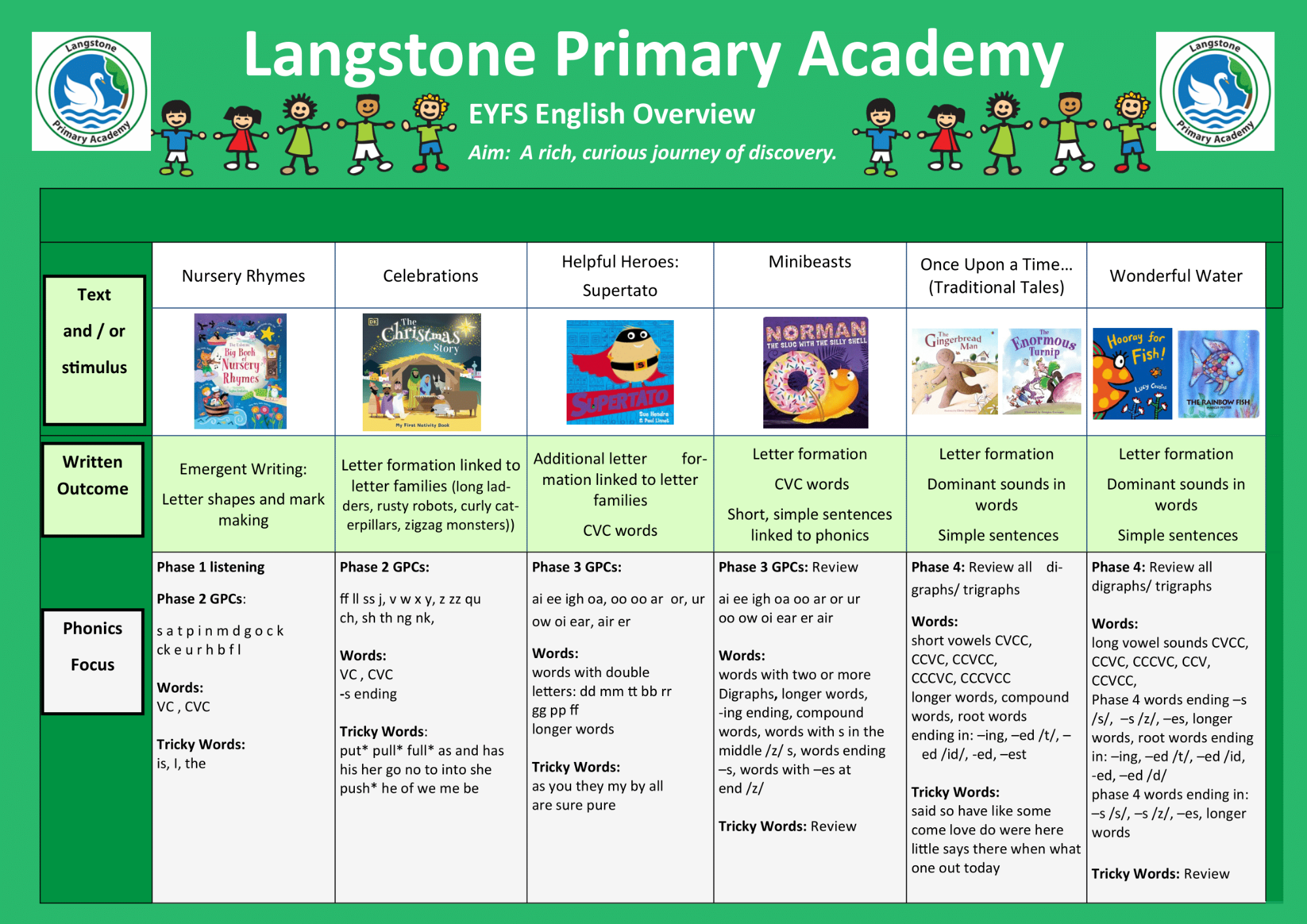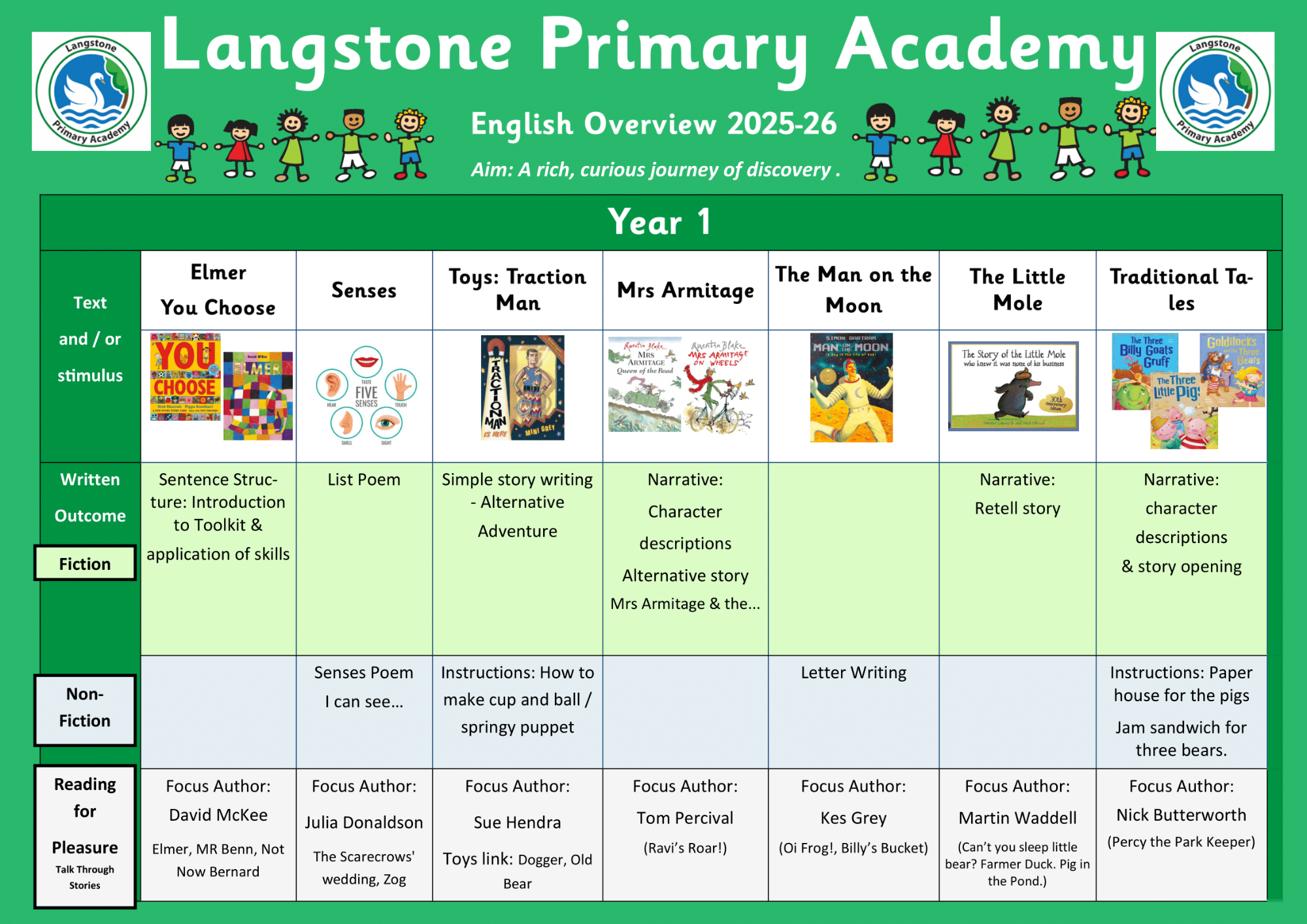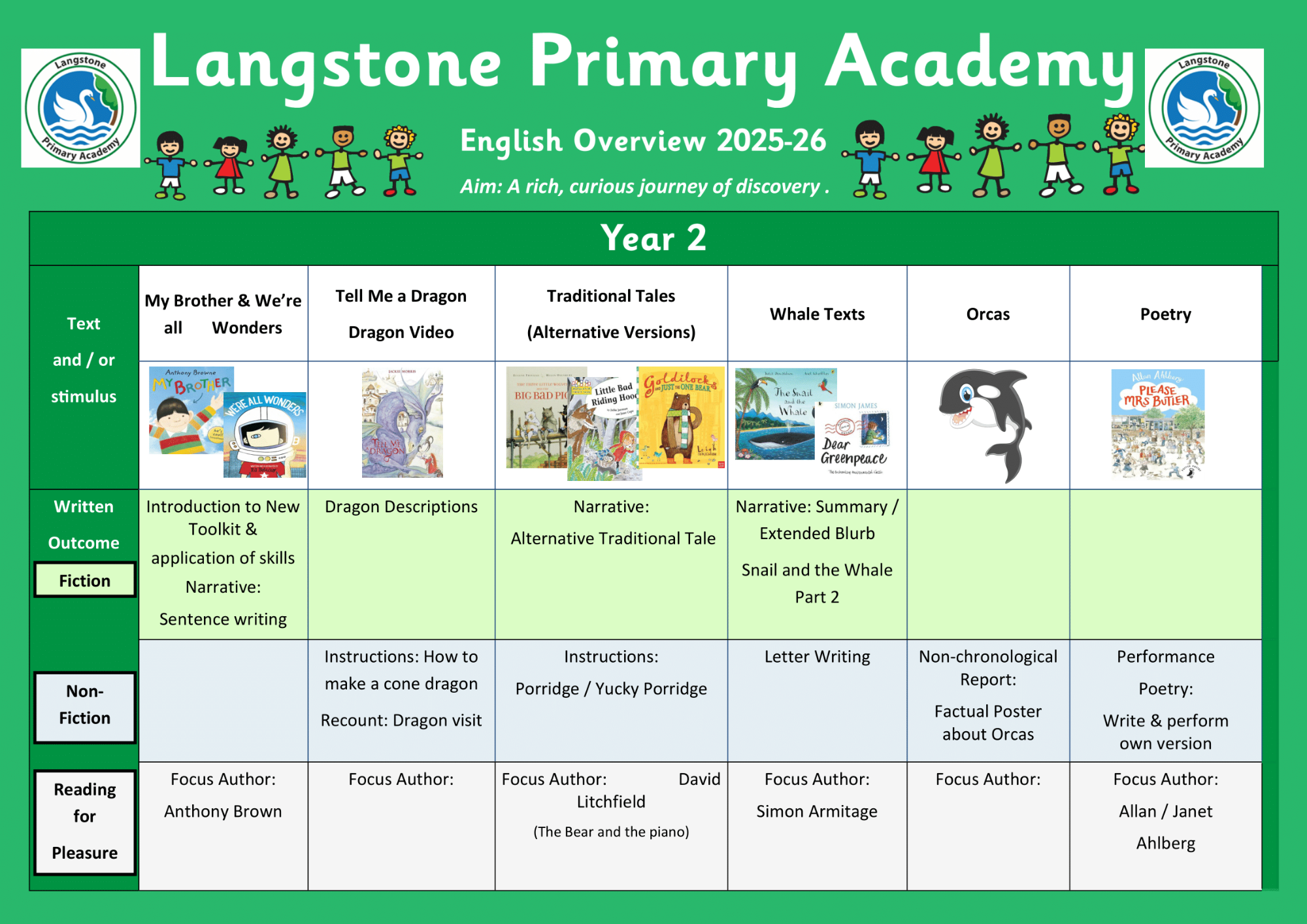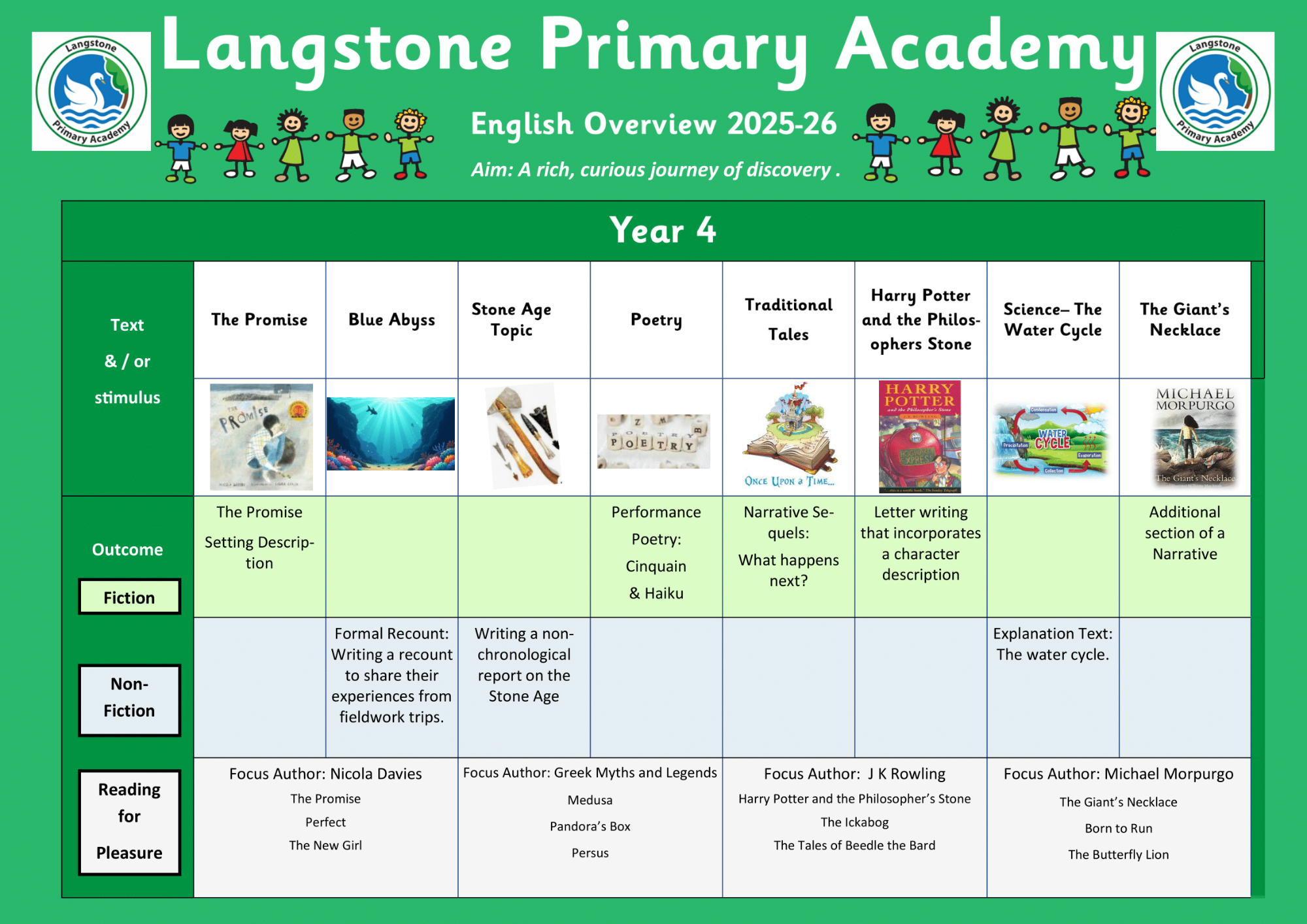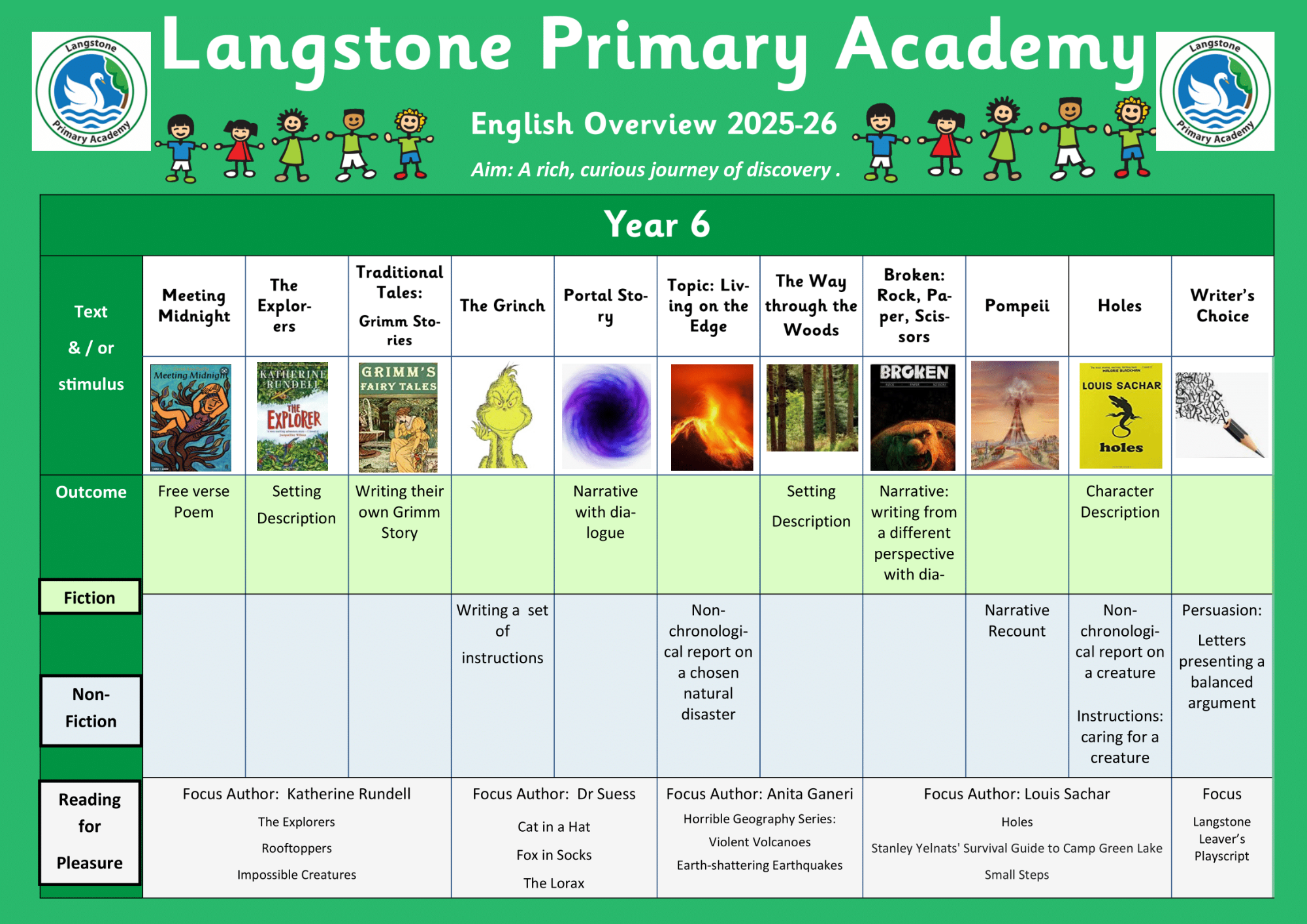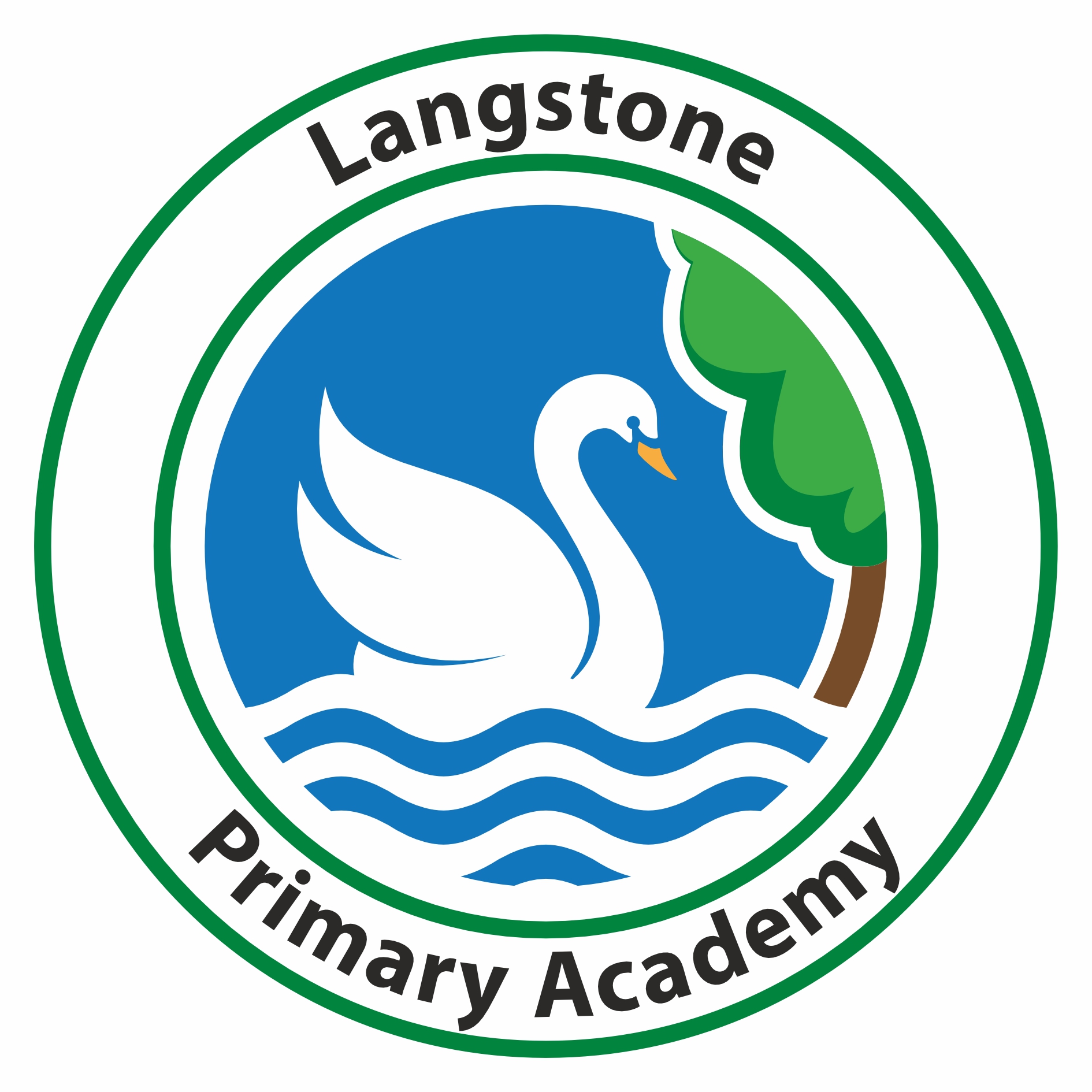Think, Learn, Be Excellent Together
Think, Learn, Be Excellent Together
Think, Learn, Be Excellent Together
Think, Learn, Be Excellent Together
English
Intent
The National Curriculum underpins the aims of the English Curriculum at Langstone Academy.
Through our curriculum, we aim to develop a holistic approach to English. We promote high standards of language and literacy, by equipping pupils with a solid foundation in both spoken and written word. We believe that this enables children to access all areas of learning and is fundamental to their educational success, allowing them to communicate, question and challenge the wider world.
In order to achieve this, we will:
-
Promote the use of talk using a variety of strategies that will encourage and develop each child’s spoken language because this is a key step in the development of children’s Literacy and communication skills. As they grow and develop, this enables them to generate, organise and collate ideas because our children learn best through reflection and thinking when discussing with their peers.
-
Use a systematic approach to the teaching and mastery of synthetic phonics because this knowledge develops their text level reading skills, which, in turn, unlocks other areas of the curriculum. Moving into Key Stage Two, this allows learners to decode and understand age appropriate, challenging texts. When writing, a solid understanding of phonics enables fluent and accurate transcription because children are more confident to apply their phonic knowledge when spelling.
-
Prioritise reading in our English Curriculum. We promote the love of reading, with daily exposure to high quality texts and opportunities for each child to practise and apply their own reading skills because we know that this will enrich all areas of the children’s English development. We use a range of stimulus to inspire and support the teaching of English using a variety of texts to develop our literary heritage, including poetry because we have found children are reluctant to broaden their reading genre/author. By exposing the children to a range of authors and texts, we are encouraging them to explore different books, developing a love of reading for both purpose and pleasure.
-
Develop aspirational writers by teaching both transcription and composition. Children will move from initial mark-making to the development of cursive letter formation for upper and lowercase letters, using an effective posture for writing because this will ensure they are able to develop a stamina within their written work and that their work is legible to others. Children will grow in their ability to compose and write in full sentences that are purposeful and include age expected grammar features because this will ensure the children are able to communicate their ideas effectively in all areas of the curriculum.
By the end of EYFS, children will:
-
Listen and respond appropriately to what they hear.
-
Speak in full sentences to express their ideas and feelings.
-
Hold a pencil effectively (using the tripod grip).
-
Orally retell familiar stories.
-
Link sounds to letters and read some words.
-
Write some words by representing the sounds with recognisable letters.
By the end of KS1, children will:
-
Read with fluency and a good level of comprehension (predicting and making simple inferences).
-
Apply phonic knowledge to blend when reading and segment when writing.
-
Communicate effectively when writing, using a broad range of vocabulary and sentence types to convey ideas.
-
Develop a neat handwriting style; forming letters of the correct size, orientation and relationship to one another.
By the end of KS2, children will:
-
Read age appropriate texts fluently with good level of comprehension (inferring, predicting, summarising, retrieving)
-
Have a broad range of language which pupils will apply when speaking and to their writing.
-
be able to draw upon their knowledge of a range of texts, genres and authors.
-
be secondary ready.
